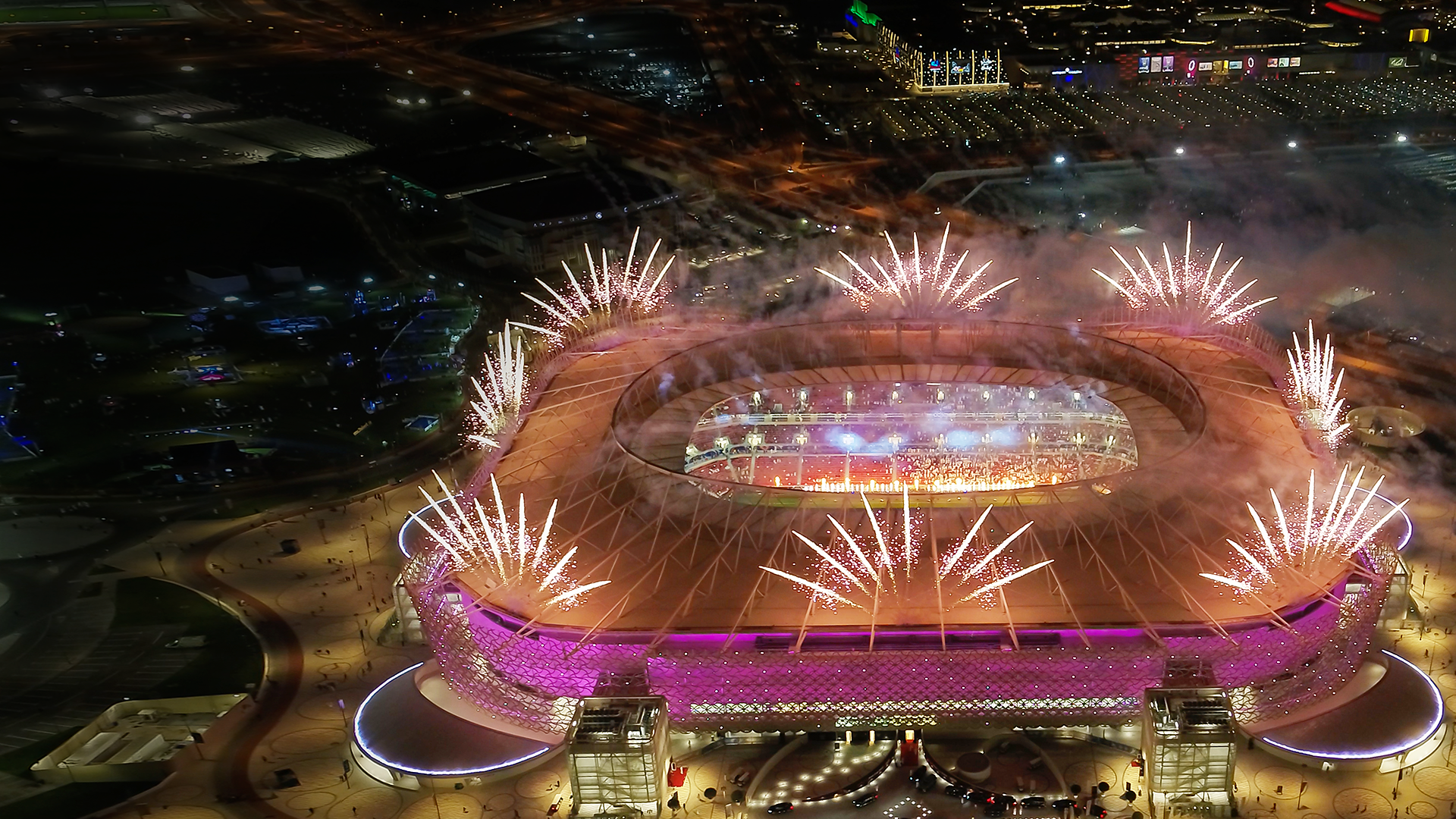FIFA World Cup Qatar 2022
Everything in its right place
Momentum grew in FIFA and Qatar’s preparations two years ahead of the first-ever FIFA World Cup in the Middle East, with major milestones achieved in labour conditions and sustainability reporting.
First sustainability progress report published
“Sustainability remains at the core of our infrastructure and tournament operational planning, and by delivering a fully carbon neutral FIFA World Cup through these various initiatives, we hope to set new standards for sustainable mega event hosting.”
The FIFA World Cup 2022™ First Sustainability Progress Report provides an update on the progress made by FIFA, the Supreme Committee for Delivery & Legacy (SC) and FIFA World Cup Qatar 2022 LLC (Q22) in 2019 regarding their five sustainability commitments, including human rights, diversity and environmental protection.
Mahmoud Qutub, the SC’s Workers’ Welfare Executive Director, said: “We are driven by a commitment to ensure the people building our stadiums and venues are treated with the utmost dignity and respect. Tangible changes in worker standards on our projects now serve as benchmarks across Qatar and the region.”
Earlier in the year, FIFA, Q22 and the SC published the development process for the FIFA World Cup 2022 Sustainability Strategy. The SC also released the FIFA World Cup 2022 Sustainable Stadiums report, outlining the sustainability features of each of tournament venue in relation to design, construction and legacy.
The organisers will continue reporting on their progress and publish a full Sustainability Report of the tournament in 2023.
Ground-breaking legal changes strengthen protection of workers’ rights
“Since the FIFA World Cup 2022 was awarded to Qatar, there has been a major collective effort from the local authorities, our partner the Supreme Committee for Delivery & Legacy and the ILO to bring about positive change, and we are really pleased to see that this has materialised into concrete major progress in the area of workers’ rights.”
FIFA welcomed major steps announced by the State of Qatar in the area of workers’ rights in September. The adoption of a new law removes the need for migrant workers to obtain their employer’s permission to change jobs while also establishing, for the first time in the region, a non-discriminatory minimum wage.
The International Labour Organization (ILO), which played a crucial role in bringing about these important changes, commented that the reform “effectively dismantles the ‘kafala’ sponsorship system and marks the beginning of a new era for the Qatari labour market."
The new law was also acknowledged by other international organisations such as the International Trade Union Confederation, Amnesty International and the Centre for Sport & Human Rights.
23 national teams confirmed for the FIFA Arab Cup 2021™
FIFA President Gianni Infantino confirmed in November that 22 national teams from the Arab region (since increased to 23 teams) had signed up to participate in the FIFA Arab Cup™, which will be staged from 1 to 18 December 2021.
Speaking during a visit to Lusail Stadium, which will host the FIFA World Cup Qatar 2022™ Final, President Infantino said: “We are delighted that all 22 teams from across the Arab world have agreed to take part in the FIFA Arab Cup 2021. We are confident that the FIFA Arab Cup will help to build excitement across the region as we edge ever nearer to hosting the first FIFA World Cup in the Middle East and Arab world in 2022.”
Two new stadiums unveiled
Two years ahead of the world’s biggest single-sport event, Qatar inaugurated two FIFA World Cup stadiums: Education City Stadium in June and Ahmad Bin Ali Stadium on Qatar National Day in December.
Secretary General of the SC HE Hassan Al Thawadi, said, “Looking ahead to 2021, we look forward to unveiling more stadiums in the new year, as we ensure that all tournament venues are delivered well in advance of the big kick-off in 2022.”
Qatar 2022 qualifying takes shape
The qualifying campaign for the FIFA World Cup Qatar 2022™ was hit by a number of organisational challenges in 2020. But with the action under way in South America, and draws held by UEFA, CAF and Concacaf, the path to the global finals has started to take shape in every confederation.

